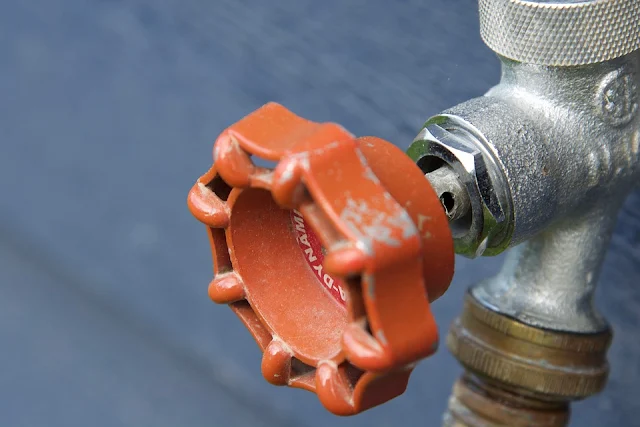Ad Code
Translate
Smart strategies for trading on crypto exchanges
October 20, 2025
Five Do’s For a Healthy Turnover That Bolsters Talent-Retention
October 20, 2025
Discover Honeybee Pharmacy (2025 Guide Important Consumer Tips)
October 14, 2025
What is Ozempic (semaglutide)? (Updated in 2025)
January 30, 2025
Posture Bra: Improving Back Support and Comfort
October 20, 2025
How To Find Suitable Properties In Cyprus?
October 20, 2025
10 Effective Strategies to Improve Domain Authority of Your Website
October 20, 2025
How to Keep Your Pipes from Freezing
Khabza Mkhize
February 04, 2024
Winter is bad enough without worrying about your pipes freezing and bursting. But that can happen when you don't prepare your pipes.
The deep freezing temperatures of winter can freeze the water within pipes. When this happens, pressure can build up as more water is called and blocked, and the ice expands.
Eventually, the pipe will burst, causing a massive flooding issue in your house. The good news is this fate is easily avoided. Keep reading to discover how to keep your pipes from freezing next winter.
Keep Your Heat On
If you plan on going for a vacation this winter, either for the holidays or just somewhere warm for a bit, leave your heat on. This will give the pipes less chance to freeze while you are gone.Heating a home no one occupies may seem like a waste, but that is the point. With no one in the house, no one can run the hot water or adjust the thermostat to keep the house comfortable for the occupants.
Instead, the pipes will be dormant with no heat flowing through them. This will lead to your pipes freezing and a major flooding issue for you to contend with when you return.
Instead, set your thermostat at a reasonable temperature; above 50 degrees is a good place. While leaving your heat on is a good idea, you don't need to heat it as if you were home.
Exposed and At-Risk Pipe
Before winter arrives, it would be a good idea to assess your home (interior and exterior) to determine if there are any at-risk pipes. If you find any exposed pipe that may be at risk for freezing and is easily accessible, you can apply heating tape or pipe insulation.Heating Tape
With heating tape, you can protect short, exposed pieces of pipe. The heating tape actually applies heat directly to the pipe.There are two types of heating tape, automatic and manual. Automatic heating tape with shut off and on as heat is needed. Manual heating tape requires plugging in and unplugging a chord when turning the tape on or off.
Much like an electric heater, though, this equipment should be used cautiously, and all manufacturer directions and recommendations should be followed at all times.
Insulation
When it comes to protecting your pipes from freezing during sudden temperature drops or while you're away, not much can beat pipe insulation.Basements and attics are places to look out for where pipes might need extra insulation. Pipes are particularly vulnerable if not appropriately insulated.
Pipes can be outfitted with foam rubber or fiberglass sleeves to help prevent freezing and bursting. While this is the most cost-effective option, it can get expensive. If an installer is required to get under floorboards and into ceilings, the price can climb quickly.
Keep Water Running
If a faucet is served by exposed pipes, let the water drip. While you may think absolutely not, you'll change your tune when you realize why. Letting water drip from a faucet can protect pipes in several ways. One of the openings of the faucet relieves pressure buildup within the pipe. This can help prevent the pipe from bursting.
Secondly, the pipes will have a constant flow of water through them. Moving water is less likely to freeze (or at least will take longer) than stagnant water. This can save you countless dollars on vacation should your pipes freeze.
Protecting Your Pipes
There's nothing worse than dealing with a flood in the middle of the winter because a frozen pipe burst. Luckily, there are easy ways to prevent this unfortunate circumstance from happening.Things like extra insulation, leaving the heat on while away on vacation, and leaving the faucet served by exposed pipes dripping can help keep your pipes from freezing and bursting.
Be sure to identify all the at-risk areas of the pipe and treat those first. Remember, though, that the more complex the pipe is to reach, the more it will cost to protect it from freezing, especially if you are trying to apply extra insulation or heating tape.
Regardless, taking care of your pipes is much more affordable than fixing them after they break.
Featured Post
DL Mining Launches Ethereum Contract Participation Service, Helping Users Earn $2K Stable Daily Returns
Zizo Gala-Mkhize-
October 20, 2025
Soapie Teasers
Sister Sites
Most Popular
List of 6,000+ Dofollow Commentluv Blogs FREE (Updated 2025)
January 16, 2025
Five Do’s For a Healthy Turnover That Bolsters Talent-Retention
October 20, 2025
How To Choose The Right Place For A Winter Campsite
March 06, 2023
Popular posts
List of 6,000+ Dofollow Commentluv Blogs FREE (Updated 2025)
January 16, 2025
Five Do’s For a Healthy Turnover That Bolsters Talent-Retention
October 20, 2025
Discover Honeybee Pharmacy (2025 Guide Important Consumer Tips)
October 14, 2025
Footer Menu Widget
Created By Blogspot Theme | Distributed By Gooyaabi Templates


Social Plugin